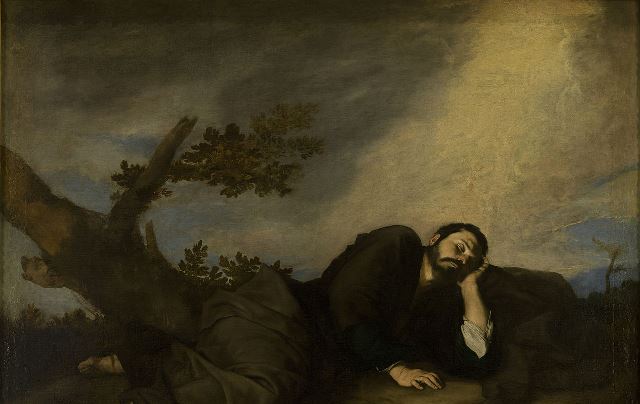
Unlike the unique clarity of Moses’ prophecy, ordinary prophecy is communicated through the medium of visions and dreams:
“If someone among you experiences Divine prophecy, I will make Myself known to him in a vision; I will speak to him in a dream.” (Num. 12:6)
But why dreams?
The Power of Dreams
Dreams, Rav Kook wrote, perform a vital function in the world. Great dreams are the very foundation of the universe.
Dreams come in many forms. There are the prescient dreams of prophets. The conscious dreaming of poets. The idealistic dreams of great visionaries for a better world. And our national dreams of redemption — “When God will return the captivity of Zion, we will be like dreamers” (Psalms 126:1).
Of course, not every dream falls under the category of a great dream. Most dreams are petty or pointless, as it says, “Dreams speak falsely” (Zechariah 10:2).
So what determines whether a dream is meaningless or prophetic?
True Dreams and False Dreams
It all depends on the dreamer.
Those who are truly servants of God concentrate their aspirations and efforts on rectifying the world. When one’s thoughts and actions are devoted exclusively to perfecting all of creation, then one’s imagination will only be stimulated by matters that relate to the universal reality. Their dreams will naturally be of great significance, reflecting the inner truth of reality, to its past, present, and future.
But the imaginative faculties of people preoccupied with self-serving pursuits will be limited — like their waking thoughts and actions — to personal matters. What great truth could be revealed in imaginings that never succeeded in rising above the vain thoughts and desires of a self-centered individual?
The Sages expressed this idea allegorically by explaining that angels bring prophetic dreams and demons bring false dreams (Berachot 55b). What does this mean?
Angels are constant forces in the universe, pre-arranged to perfect the world. True dreams relate to these underlying positive forces. Demons, on the other hand, are unholy forces rooted in private desires which are inconsistent with the overall universal order. False dreams are the resultant fantasies of such personal wishes.
The True Reality of Dreams
What would the world be like without dreams?
Life immersed solely in materialism is coarse and bleak. It lacks the inspiring grandeur of expansive horizons. Like a bird with clipped wings, it cannot rise above the bitter harshness of the present reality. We are only able to free ourselves from these shackles through the power of dreams.
Some foolishly pride themselves on being “realists.” They insist on taking into account only the present state of the world. But that’s a partial and fragmented view of reality. In fact, it is our dreams that liberate us from the limitations of the current reality. It is our dreams that accurately reveal the inner truth of the universe.
As that future reality is revealed, we merit an increasing clarity of vision. Our perception begins to approach the aspaklaria hame'irah, the clear vision of Moses, with whom God spoke “face to face, in a vision not containing allegory, so that he could see a true image of God” (Num. 12:8).
(Sapphire from the Land of Israel. Adapted from Orot HaKodesh vol. I, p. 226; Ein Eyah vol. II, p. 279)
Illustration image: “Jacob’s Dream,” by José de Ribera (1639).





